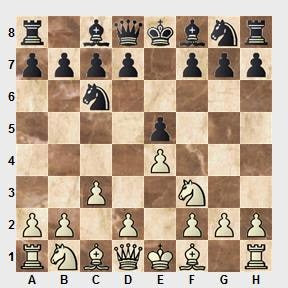A funny title really, seeing that I'm only going to show a position and not a full endgame. And it wasn't as if I was playing, The
Melbourne Chess Club used the long weekend to host the
Hjorth Open as a tribute to IM Greg Hjorth who passed away in 2011.. I just dropped in for couple of hours on my day off over the public holiday weekend. It was good to meet some friends who I hadn't seen for a while and to browse some games and positions. I was there on Monday morning or round 6 out of 9, and the top 2 players from the event were playing, IM Max Illingworth-IM James Morris.
 |
| R-L IM Max Illingworth, FM Greg Canfell, IM James Morris, FM Chris Wallis |
Nothing beats playing in a good chess tournament, but walking around, spectating can be a great experience too. There were about 40 games to choose from in the round I was there. There were high level contests on the top boards, but lower down was interesting for me as I knew so many of the players. I even managed to play a few blitz games with Tom Kalisch who didn't have an opponent for the round.
The endgame that caught my attention was between Richard Voon and Ray Yang.
Rook endings with 2 v 1 pawn are extremely common so it's a good idea to get to grips with them. Now I've put in a fair amount of work into my endgames over the past few years, but when I looked at this I couldn't remember having looked at these types of positions before, and couldn't work out what the result should be with best play. I put the position into Chessbase 12 and under a menu labelled "Report" I hit a button I'd never hit before called "Similar Endgames". The search brought up over 60,000 endgames with the same material balance, but only a small percentage of this group of games had a similar pawn structure. However, I was most impressed to find that this position has been seen in a game before!
The game Obukhov-Cherniak Belevanets Memorial Open 1991 reached this exact position with black to move, just as in Voon-Yang. After a bit of moving around, black was able to sacrifice his remaining pawn to reach a drawn position.
According to Nalimov Tablebases this is a draw, although it is fairly easy to see. Black will keep checking the white king which cannot escape checks and defend the e-pawn. By the way, with white to move in this position, it is a win as white plays 1.Rf6 and then hides his king on g6.
So I guess with a resource like that, the ending must be pretty drawn, and really we would have to say that Richard Voon managed to gain a half point by winning this game. But practically speaking, it is always worth playing on as the defenders job is difficult, and psychologically, it is very tough to keep holding on to a position where you have almost no chance of winning. Take the following position:
Here white has managed to bring his king past the pawns, but the position is still level. 1..Ke6, and the game should end in a draw. But in the game Giertz-van Vaalen Biel 1997 black played
1..Re7? allowing an exchange of rooks.
2.Rb7! the resulting pawn endgame is a draw
2..Rxb7 3.Kxb7 Ke6 4.Kc6 Ke5
It appears for black that his king is doing a great job of holding, if not winning the position! Unfortunately, white's next move brought him back to earth.
5.Kd7! Now when black takes on e4, white will play Ke6 and will just swing across to take on g6 and then promote.
The defending side must also have their pieces in the right positions. The rook must defend from the side at times, but must head to the back of the board to start checking at just the right moment. The defending king needs to do a job of both blocking the enemy passed pawn and defending his own pawn. This would be harder if the attacking sides pawns were further apart, and here we have one of the main secrets of this endgame. The closer the pawns are to each other, the easier it is to defend this type of position. If the pawns were 3 or more files apart the defence would be much more difficult.
Funnily enough the stats from my database search through Bigbase 2013 come up with 64 games with the same pawn structure as this, though with varying piece placements. Less than half of these games ended up as draws (28 games, or 44%), so there is a good reason for playing on in this type of position seeing the stronger side has nothing to lose. There is also good reason for putting some work into rook endings, as these happen more often than any other sort of endgame, and one of the main ideas is finding positions to head for which you know will give you the right result (win if you're the stronger side, or draw if you're defending). Simplifications to theoretically known positions will maximise your results,
I'll post some more about endgames regularly, and I'll revisit rook an 2 vs rook and 1 at some stage in the not too distant future.


































